Data show inflation is high in debt-ridden Kogi State
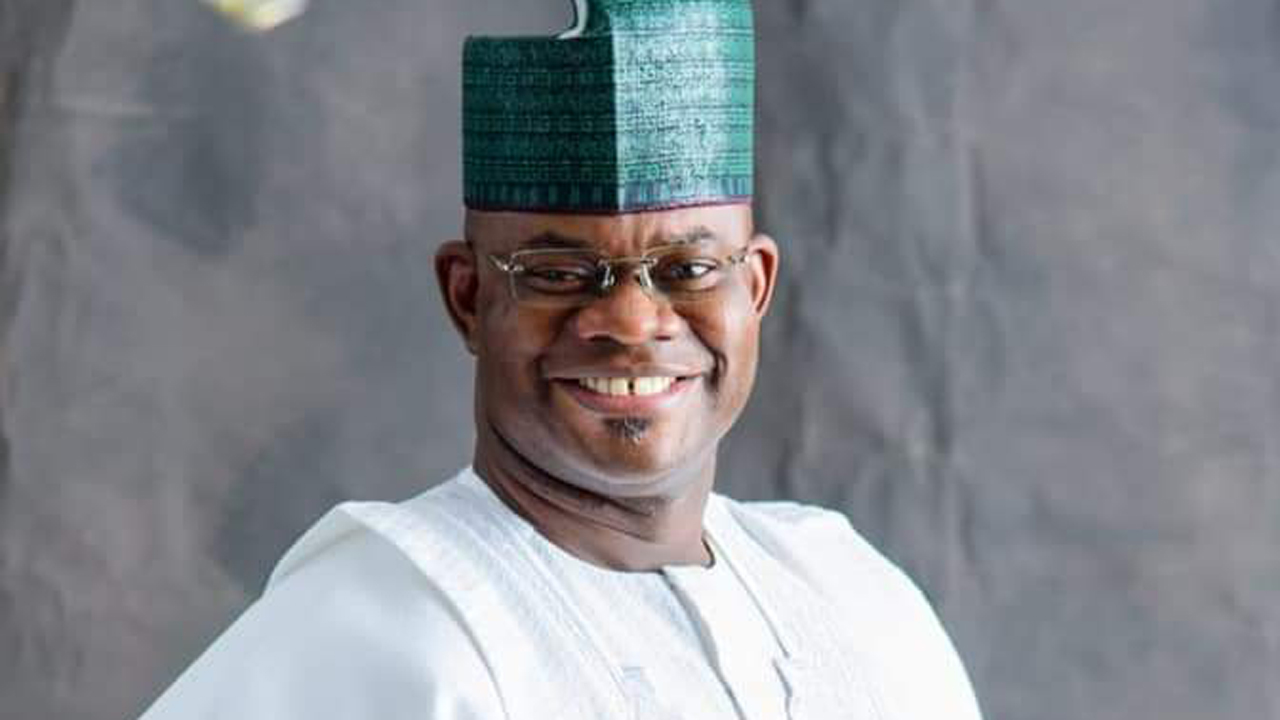
By Daniel Adaji
The National Bureau of Statistics (NBS) data from January to June, 2022 indicate that inflation rate is higher in Kogi State than in relatively developed states like Kano, Lagos, Port Rivers and even the Federal Capital Territory (FCT), Abuja.
An agrarian state, with a lot of civil servants, it is surprising that food inflation has continued to rise from 18.4 per cent in January, 2022 to 24.81 per cent in June 2022, more than the national average.
Even in the month of July 2022, Kogi State was among the states with the highest inflation rate in the country. Akwa Ibom State recorded the highest inflation rate with 22.88%, closely followed by Ebonyi State with 22.51%. Others include Kogi (22.08%), Bayelsa (21.6%), and Rivers State (21.37%).
An agrarian state, with a lot of civil servants, it is surprising that food inflation has continued to rise from 18.4 per cent in January, 2022 to 24.81 per cent in June 2022, more than the national average.
In terms of food inflation rate, Kwara State recorded the highest with 29.28%, followed by Akwa Ibom (27.22%). Kogi State came third, as it recorded 26.08% food inflation rate in July 2022, while Ebonyi, and Ekiti State recorded 25.83% and 24.78% respectively.
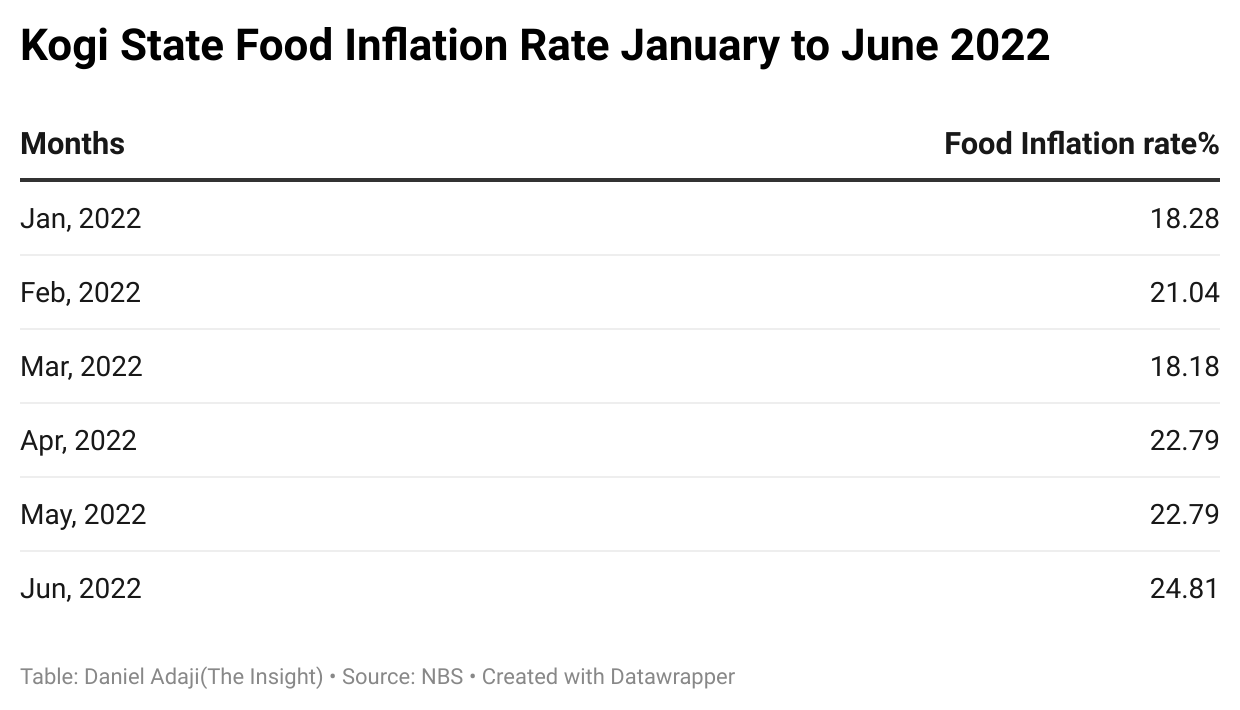
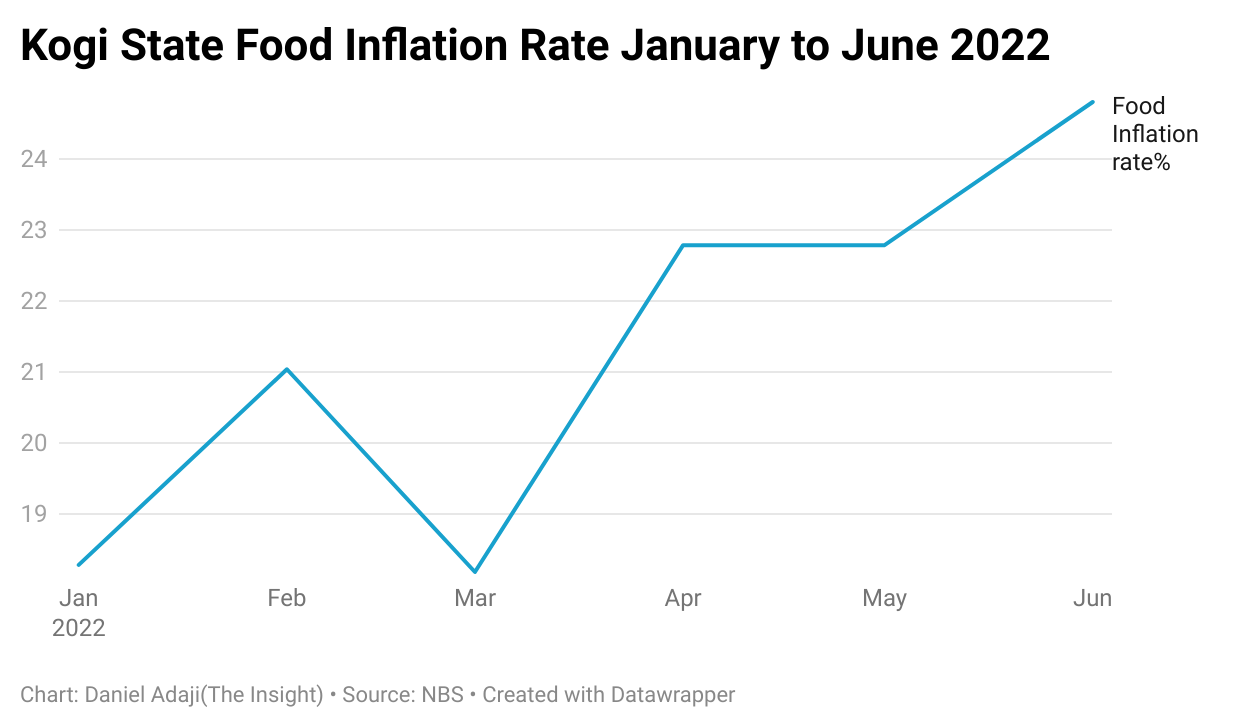
At his inauguration as the fourth governor of Kogi State in 2016, Alhaji Yahaya Bello, young and highly spirited, promised to develop Kogi State, boost farming and create employment, in the minimum, for 500,000 cassava farmers in the North-Central State.
He had said, “In this programme, we are not just producing, but adding value to cassava production. What is coming with this 500,000 cassava farmers initiative is 10 ethanol processing factories.’’
Though Kogi State does not rank among states with the highest debt profile in the country, its external and domestic debts are a source of worry due to the relatively low industrial production and the relatively low tax revenue in the state.
The governor had said that the programme would also see to the establishment of “a lot of factories like garri, and chips processing factories etc. We have a situation whereby people would come from other states and buy our produce, go with it and label it Ebonyi rice, Abakiliki rice etc. All these must stop.’’
It is an irony that a state with such promising agricultural potential is faced with high food inflation.
During his inauguration for a second term in 2020, Governor Bello made a similar promise, saying “Nigeria is the largest cassava grower in the world and Kogi State is Nigeria’s largest grower. We will add 500,000 new cassava farmers from our populace into our initiatives around this amazing crop during this second term. We also plan to build the nation’s largest ethanol plant in Kogi State for the production of ethanol fuel from cassava. This will and further expand the use of green fuels in Nigeria given that Climate Change has become such a dramatic concern globally. We have secured a partnership with the NNPC Group, the Central Bank of Nigeria and a private investor to make this project a reality.”
He further added that: “Livestock farming has always been subsistence in Kogi State but over the last four years, we have grown the numbers of participants in this area too. Our second term strategy is to support more Kogites to find employment in poultry farming. We will also be establishing institutional cattle ranches to take advantage of the employment and income options in this neglected area…”
It is an irony that a state with such promising agricultural potential is faced with high food inflation.
The next governor of Kogi State must be prepared to think outside the box in order to overcome the debt burden and pay appropriate salaries to civil servants.
Apart from inflation, Kogi State’s debt profile is high, and it is not clear how sustainable it will be if government makes good its promise to deduct the relief funds at source, at this time that the monthly allocations from the Federation Account may not be as robust as it has been since 2016. The table and chart below show the external and domestic debts owed by Kogi State government.
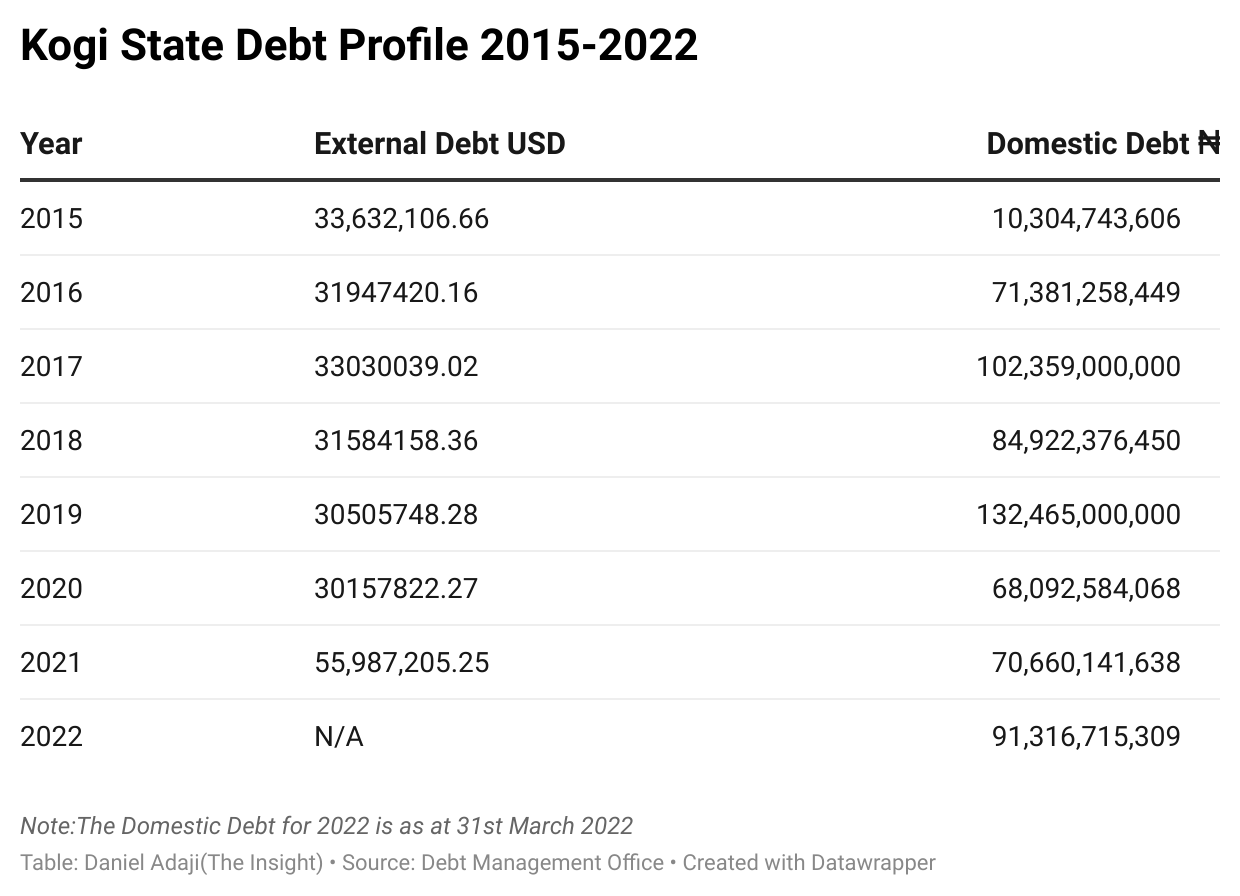
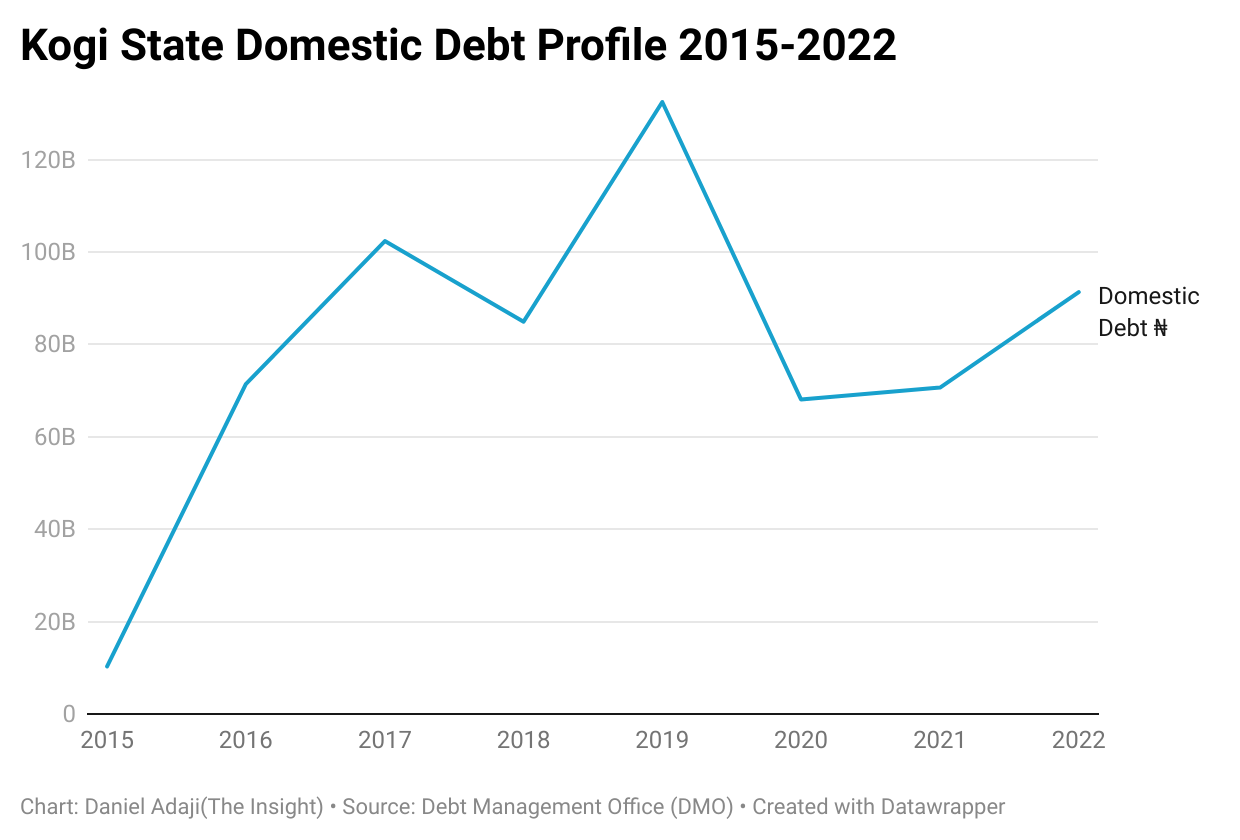
The external debt of Kogi state has been increasing since 2015 and the peak was witnessed between 2020 and 2021. This is amazing as the increase witnessed in 2021 was very sharp.
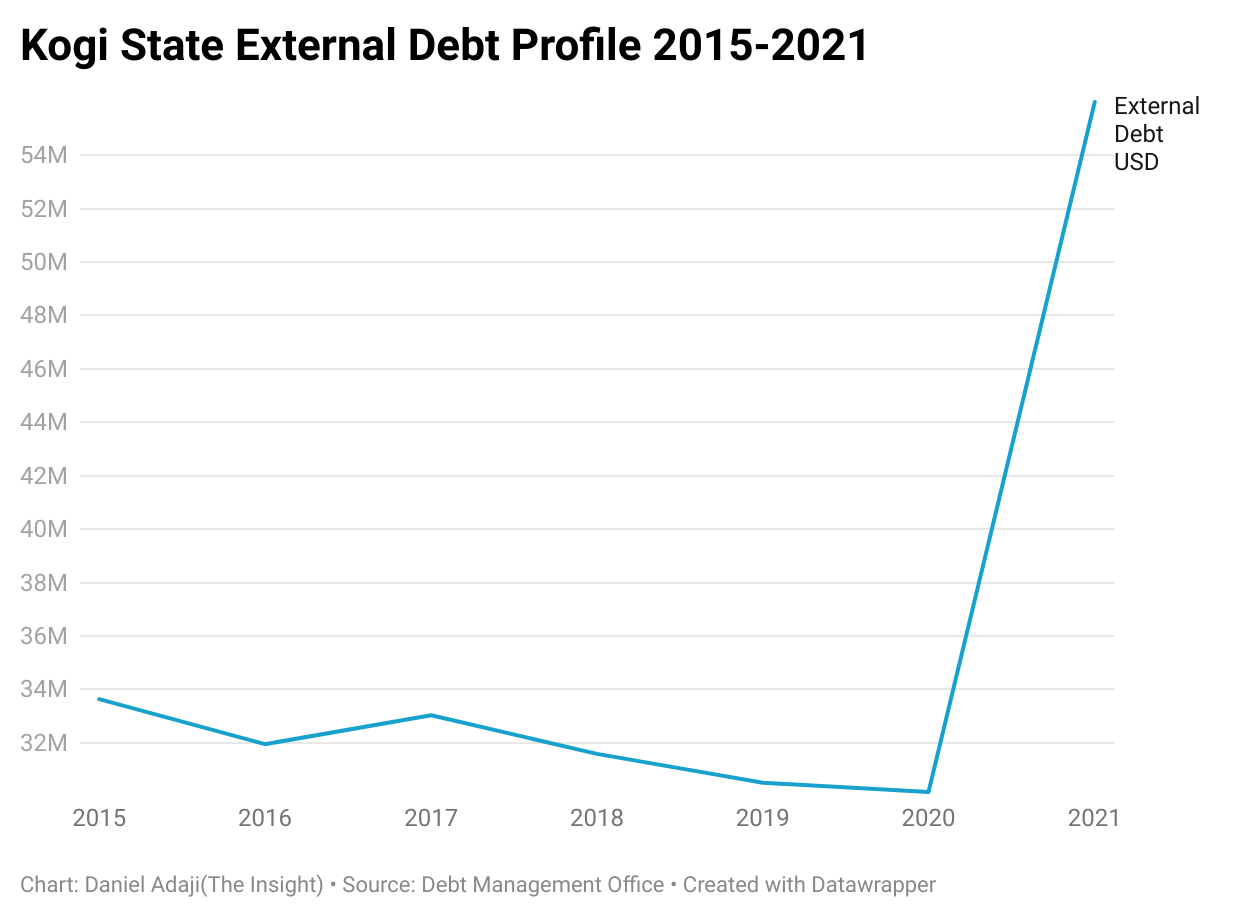
Though Kogi State does not rank among states with the highest debt profile in the country, its external and domestic debts are a source of worry due to the relatively low industrial production and the relatively low tax revenue in the state.
Debt repayment may be responsible for the state government’s resort to ‘percentage payment’ to civil servants, as against the payment of full salaries, since 2016. The deduction of external and domestic debt obligations at source from Abuja definitely reduces the funds available for recurrent and capital expenditure in the state.
The next governor of Kogi State must be prepared to think outside the box in order to overcome the debt burden and pay appropriate salaries to civil servants.
The Insight Report
Nigeria Coverage



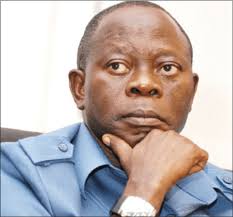
One Comment